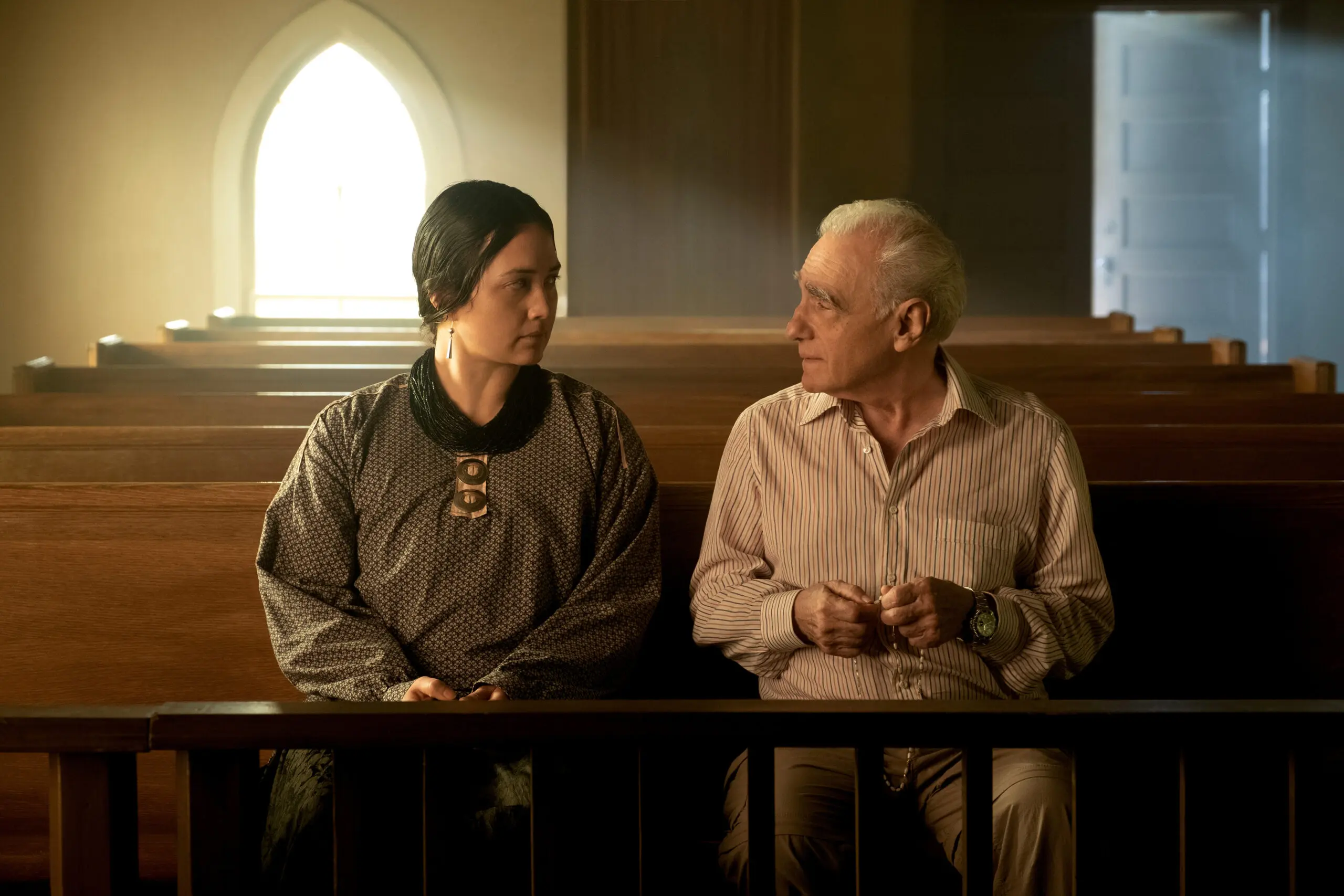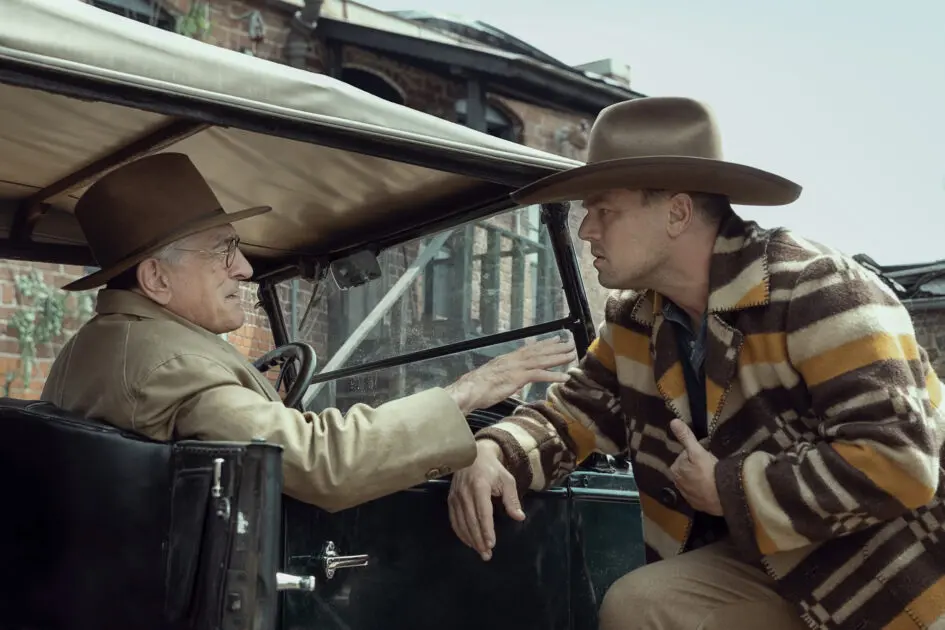Per Matt
Awards season has returned once again, so it must be time for yet another Martin Scorsese-Leonardo DiCaprio passion project. This one, Killers of the Flower Moon, which is based on the nonfiction bestseller by David Grann, is a tour de force in cinema, albeit overdrawn.
This adaptation details the complex inheritance of Osage oil rights and the mastermind who killed so many Native Americans in order to receive them, which caught the attention of J. Edgar Hoover’s FBI. It stars two of Scorsese’s biggest collaborators (Robert De Niro and Leonardo DiCaprio), along with a splash of fresh water (Lily Gladstone).
William King Hale (De Niro) is a conniving businessman who acts like a friend to the local Native Americans, but in reality, he is killing them off, one by one, for their money. Hale’s master plan kicks into high gear when his nephew, Ernest Burkhart (DiCaprio) returns home from war. The first half of the 206-minute deluge focuses on Burkhart, whose reentry to society is aided by his job (working as a chauffeur). As he gets familiar with the Oklahoma area and the Osage Nation, his interest is sparked by Mollie Kyle (Gladstone). Their whirlwind romance leads to marriage and a family.
The second half of this cinematic opus is where the main action kicks in. The dubious nature of “King” fully reveals itself, while Burkhart’s initial simplistic depiction turns violent, and finally wise to his uncle’s ways, if a bit too late. Mollie is in the middle of it all, whose faith in her husband (as well as the U.S. government) is tested regularly. If you can make it to the end of the film in one sitting — which is asking a lot — you’ll discover this wild, wild West adventure becomes a courtroom drama, which felt way too rushed for this long-time fan of The Practice and Boston Legal.
In the end, the sense of hopelessness is real, and the political corruption is muddied by our justice system, and no one is truly satisfied with the outcome.
As an avowed fan of the Western genre, I enjoyed watching this movie, overall, but the plot’s pre-Burkhart marriage pace slows down the film a bit, as Leo devolves into a killer (whether admitting it, or not). De Niro does De Niro things while his Svengali-like performance is killer. Lily Gladstone is truly the highlight here, whose stoic performance is tempered with all sorts of trauma. The actor’s restrained subtlety highlights her character’s seemingly all-knowing ability, while almost never revealing her full truths. There is so much pain hidden behind her eyes. The actress actually releases the on-screen tension whenever paired with other Native Americans (usually in extreme joy or pain). She’s definitely the emotional heart and conscious of the entire storyline.

Lily Gladstone and Martin Scorcese in “Killers of the Flower Moon,” premiering in theaters around the world on October 20, 2023.
The cursed history of the U.S. government still haunts North American Native Americans to this day. It’s a painful story that Scorsese makes all too real. In between all the dread, there’s fleeting moments of familiar faces, including several country singer cameos, John Lithgow (making a bit of a career resurgence after The Old Man, and now this) and Brendan Fraser (who seems to pop up in awards bait these days).
Will Flower Moon score more awards for Leo and Scorsese? Time will tell, but this definitely feels like yet another passion project that went overboard in hopes of luring the Academy’s attention. And speaking of time, with an almost four-hour runtime, the film should have more viewers at home than in theaters, as an intermission was definitely needed by this viewer. Sitting in a chair for that amount of time in a movie theater without a break is a painful process, and when a filmmaker’s ego gets involved and editing cuts aren’t made, he shouldn’t be rewarded for the excess.
Could this crime story have been better off, released as a limited series? Most likely. Its 352 pages of source material could be mined (even more). And since it’s already a streaming film, a sponsor was already attained. I shudder to think the story could have actually been longer. I enjoyed this film more than The Irishman, which also sported a bloated runtime, but is this format all Scorsese has been reduced to? Online releases with limited visits into movie theaters for hopeful awards aplenty?
So, what’s the moral of the story? Is ignorance bliss? How about the truth is stranger than fiction? Maybe nothing beats Big Oil, not even the federal government? And nobody tells Scorsese to shorten his films, not even the Academy.
